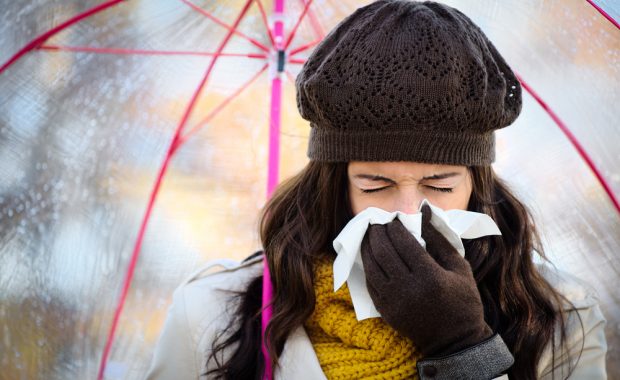(NC) The land-down-under is wrapping up one of its worst flu seasons on record. As of early October, Australia’s National Notifiable Diseases Surveillance System had received 298,120 notifications of laboratory-confirmed influenza — a worrying increase from its previous record of 229,000 total cases in 2017.
Why Aussie statistics have Canadian influenza experts concerned
While a typical Canadian flu season starts in October and peaks in our winter months, the southern hemisphere’s flu season usually starts in May and ends in October, peaking in their winter month of August. That makes Australia the place to watch for possible clues about the severity we can expect from our flu season.
This year, Australia’s flu season started early in March and peaked early in June and July, with a higher number of hospitalizations and deaths – signs that point to the possibility of a long and severe flu season here in North America, too.
The science of creating the flu shot (and the art of getting it right)
The influenza virus mutates rapidly, and many strains exist. One possible explanation for Australia’s difficult flu season is a mismatch between the circulating virus strains and the strains used in this year’s southern hemisphere flu vaccine.
Each year, the World Health Organization aims to accurately predict which influenza strains will be circulating throughout the population. Based on extensive global data from more than one hundred institutions, the WHO makes its recommendation to manufacturers on the most protective composition of the vaccine for that year and hemisphere. However, it is possible that the strains circulating can change during the time it takes to produce the annual vaccine.
Nevertheless, arm yourself
The seasonal flu vaccine is still everyone’s best shot at preventing the spread of the flu and avoiding dangerous complications like pneumonia. And despite myths to the contrary, the vaccine you receive cannot give you the flu.
People at greatest risk include very young children, seniors, pregnant people, Indigenous peoples, residents of nursing homes and other chronic care facilities, and people with health issues, including lung conditions like asthma and chronic obstructive pulmonary disease (COPD). The Ontario Lung Association especially recommends flu vaccination for people who are at higher risk, and those who have regular contact with those at higher risk.
Listen to your lungs this flu season
With all signs from the southern hemisphere pointing to a potentially severe flu season, you may find yourself in search of advice and guidance from the experts. The Ontario Lung Association’s free Lung Health Line is staffed by certified respiratory educators who can answer your questions about the flu and other breathing issues. Reach out at lungontario.ca.
